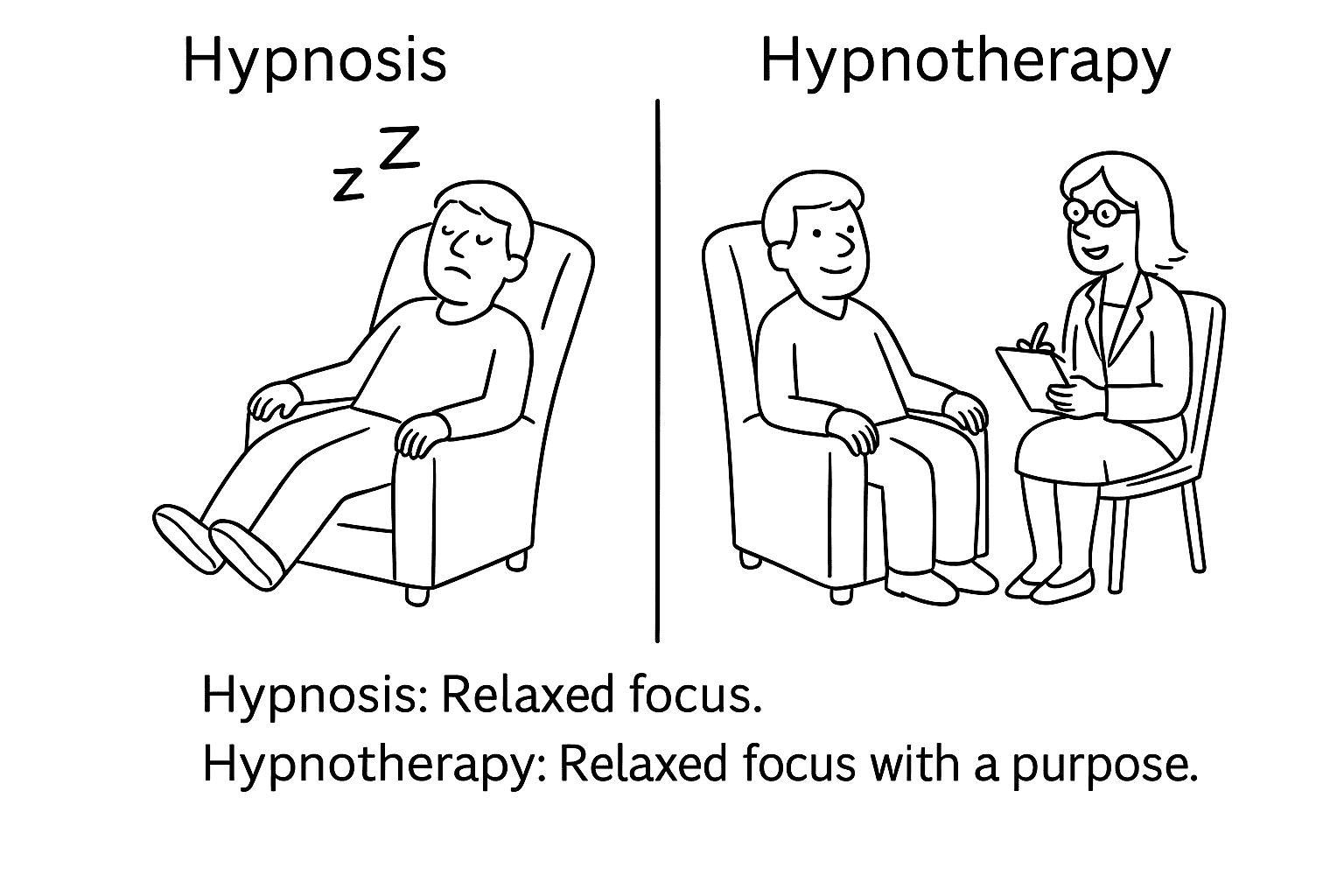
Introduction
Let’s address a common misconception about hypnosis: is it merely a party trick where participants cluck like chickens on stage, or does it encompass a broader range of psychological techniques? Spoiler alert: the answer lies in the latter; there’s a rich and nuanced world of hypnosis that extends far beyond those theatrical antics, and you won’t find any embarrassing farm animals in this discussion. Hypnosis is a legitimate therapeutic tool that can promote relaxation, enhance focus, and facilitate positive behavioural changes, tapping into the subconscious mind to address various issues such as stress, anxiety, and even pain management.
Quick Humour Tip
Forget the theatrics of swinging pocket watches; we’re embracing a more immersive experience. Imagine not a flashy stage performance, but rather a serene journey into the depths of your imagination, what I like to call a “guided daydream.” Here, the focus is on inviting you to relax and explore the rich landscapes of your mind, allowing your thoughts to drift freely and peacefully.
Key Definitions
Hypnosis:
Hypnosis is a trance-like state that allows individuals to attain focused attention, accompanied by profound relaxation and increased suggestibility. This means that while in this state, a person can become more open to ideas and suggestions. Imagine it as zoning out to the point where you forget the location of your keys, but instead of merely drifting away, this experience is guided and supervised by a trained professional who ensures a safe and beneficial process.
Hypnotherapy:
Hypnotherapy represents the clinical application of hypnosis, harnessing its potential to achieve specific therapeutic objectives. Through hypnotherapy, individuals can work towards various goals, such as alleviating stress, modifying unhealthy habits, enhancing self-confidence, and confronting and overcoming fears or phobias. Essentially, it is hypnosis applied with intention, similar to the practice of yoga, but without the requirement of any physical postures. Hypnotherapy offers a structured approach to personal development and mental well-being, utilizing the power of the mind to foster positive change.
Hypnosis vs. Hypnotherapy, At a Glance
|
Hypnosis |
Hypnotherapy |
|
|
What is it? |
A state of mind |
A clinical practice using hypnosis |
|
Goal |
Deep relaxation, suggestibility |
Achieve specific therapeutic outcomes |
|
Who does it? |
Anyone (with or without a stage) |
Trained therapist (preferably with a chair) |
|
Classic image |
Stage magician, swirling spirals |
Calm room, focused client, less drama |
